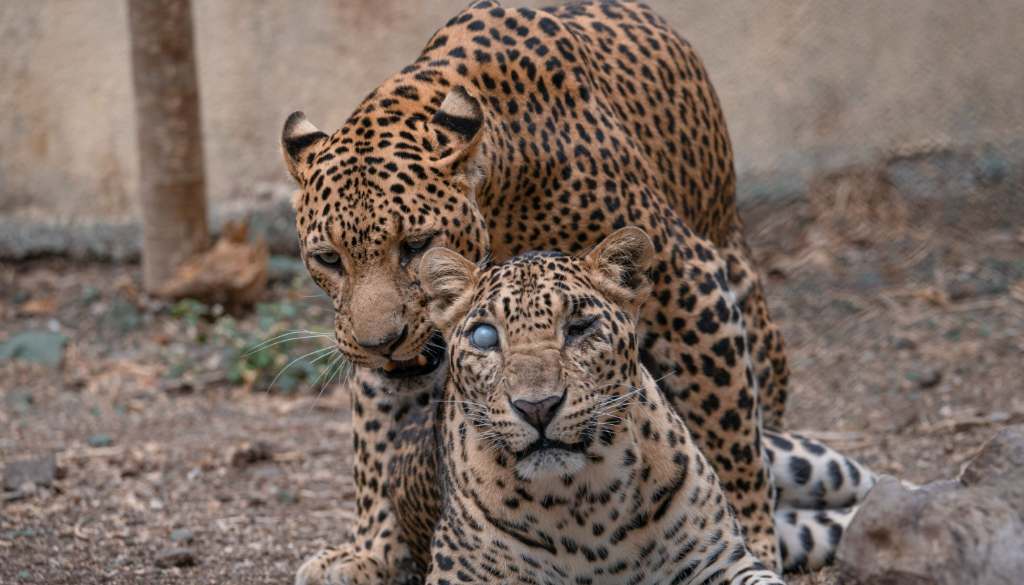Pune: Elderly Leopards Find Sanctuary at Maharashtra’s First Leopard Rescue Centre in Junnar

Junnar, 5th March 2024: Maharashtra’s first leopard rescue centre, situated in Junnar, Pune district, is a shelter for many elderly leopards who live out their lives in rescued care. The Manikdoh Leopard Rescue Centre, operated jointly by Maharashtra Forest Department and Wildlife SOS, currently houses 39 leopards of which nearly 60% are under geriatric care.
Most of the resident animals at the rescue centre were either targets of human-leopard conflicts, attempts of poaching by traffickers or orphaned in the wild. Rescued from uncertain fates, the leopards under the care of Wildlife SOS and Junnar Forest Division have had their lives turned around. They have spent the better part of their lives in a near-natural environment, supplemented by veterinary care, medical treatment and healthy nutrition.
Ganesh and Vitthal, two male leopards who reside together, are not only old but also face distinct disabilities. While Ganesh is completely blind, Vitthal has a missing hind paw. Caring for old leopards with disabilities is therefore a bigger challenge but the care staff at the sanctuary are always up to the task. While the caregivers prepare olfactory and food-based enrichments for the blind Ganesh, structural enrichments like platforms are constructed at lower levels keeping Vitthal’s physical shortcoming in mind.
A leopard enters the latter phase of their lives from the age of 12 years, though this age group varies from species to species. For the leopards, this is the phase where they encounter more dental problems, joint issues and a marked change in their overall behaviour and personality. Even for the leopards who have grown old under the care of Wildlife SOS and Junnar Forest Division, the change is absolutely distinct.
Dr. Chandan Sawane, Veterinary Officer, Wildlife SOS said, “Leopards suffer from dental problems such as broken teeth, accumulation of plaque, and tartar and root problems. These issues hamper their ability to chew food properly. Unable to eat, they suffer a serious lack of appetite which compromises their immunity. We perform regular dental check-ups, to clean up the tar and check for half-broken teeth or blunt canines that may pose a problem.”
Kartick Satyanarayan, Co-founder and CEO, Wildlife SOS said, “At present, over 35 leopards reside at the Manikdoh Leopard Rescue Centre, out of which nearly 60% are geriatric. Hence our team is extremely meticulous about the medical care, diet and health check-ups to ensure the well-being of the elderly leopards.”
Amit Bhise, Assistant Conservator of Forests, Junnar, said, “The leopard rescue centre has been in existence since 2007 in Junnar, and it acts as a sanctuary for the animals who are not able to go back to the wild. The number of rescued leopards that are currently under geriatric care shows the efforts of the forest department and Wildlife SOS in providing them a long and healthy life.”







